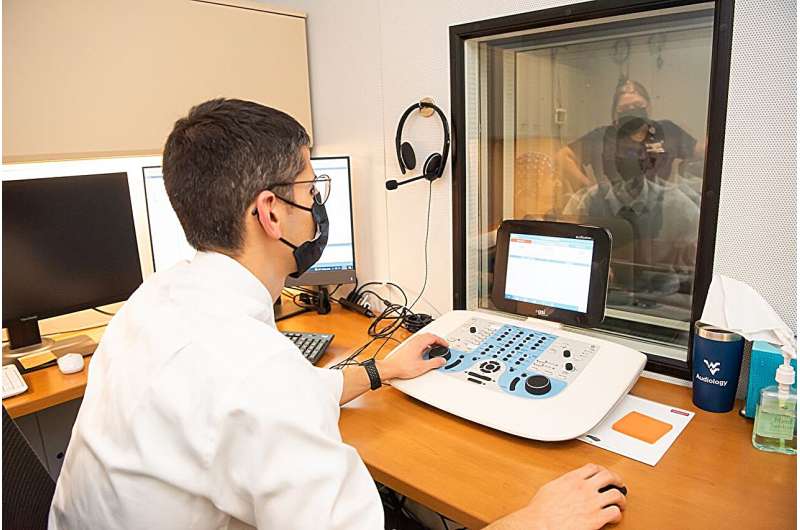This article has been reviewed according to Science X's editorial process and policies. Editors have highlighted the following attributes while ensuring the content's credibility:
fact-checked
trusted source
proofread
Research shows government regulation of jobs hinders workers and consumers

Audiologists, auctioneers and crane operators have one thing in common: they can't legally do their jobs without licenses that create professional obstacles and hike prices, according to the West Virginia University Knee Regulatory Research Center.
In a paper for The Journal of Entrepreneurship and Public Policy, WVU researchers introduced a new database that reveals occupational licensing's impact on the workforce. The database encompasses state regulations on 50 jobs across all 50 states and the District of Columbia, with represented professions ranging from acupuncturist to interior designer to nuclear medicine technician to shampoo assistant.
Contributors to the paper included Knee RRC members Conor Norris, assistant director; Edward Timmons, director; and Ethan Kelley and Troy Carneal, legislative analysts.
"We have stronger evidence that licensing reduces the supply of professionals than that it ensures quality," Norris said. "Professional licenses increase the cost and time to enter a licensed profession. As a result, consumers pay higher prices for services.
"At the RRC, our aim is to enhance transparency and facilitate policy discussions about occupational licensing. This database is key to that effort because it enables comparisons of standards across different states."
The Center is housed within the WVU John Chambers College of Business and Economics.
Licensing is a form of regulation that imposes specific requirements on people before they can legally practice certain professions. In the 1950s, the percentage of licensed workers in the U.S. was around 5%. Now, it's up to 22%. The point of occupational licensing is to improve the quality of services and ensure consumer safety, but according to Norris, results are mixed.
While more than 1,000 professions are estimated to require a license in at least one state, there is no definitive count and no complete list of every profession licensed in every state. Norris said individual states don't even display lists of the professions they license, along with requirements, in one central location. Policymakers are often unaware of licensing laws in other states.
Other databases of licensed occupations do exist. For instance, the Institute of Justice publishes a detailed, wide-ranging list of licensing requirements, but that resource focuses on low- and moderate-skilled professions, omitting many skilled professions, including in health care. The RRC database provides information about more than 30 health care careers and incorporates details absent from other collections, such as requirements like citizenship, English proficiency and good moral character.
The RRC database also includes information about transferring licenses between states. Because licenses are only valid at the state level, licensure makes it more difficult for workers to move from one state to another. State policies like endorsement or reciprocity may reduce that burden.
As a test case, the researchers used the database to contrast licensing standards for audiologists across different states. Audiology is not included in any other occupational databases or research, Norris said, even though licensing requirements can vary widely from state to state.
For example, in Pennsylvania, audiologists pay a licensing fee of $50, while in Minnesota are charged up to $544. A master's degree is required in 19 states, while 32 states require audiologists to hold a doctorate. Seven states have minimum age requirements for audiologists, 17 states require them to be U.S. citizens, four require them to speak English proficiently, and 19 require them to have good moral character.
"Far more workers are affected by licensing than other labor market institutions like labor unions or minimum wage laws," Timmons said. "Unlike these other laws, licensing mainly focuses on service professions and ones that typically offer avenues for entrepreneurship.
"Our data not only catalogs specific licensing requirements, it exposes their effects. We can now estimate, for instance, if licensing fees restrict the supply of workers. We can estimate the effect of education requirements and exams on the quality of professionals and their services. And citizenship requirements and English language proficiency are especially useful for understanding licensing's effect on immigrants."
Timmons and Norris said the RRC will check and update the data every year and there are plans to add more professions.
More information: Conor Norris et al, Introducing a new state-level occupational licensing requirement database, Journal of Entrepreneurship and Public Policy (2024). DOI: 10.1108/JEPP-05-2023-0047
Provided by West Virginia University


















